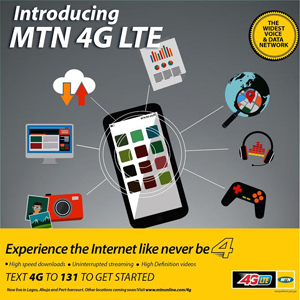Afeez Akinfola Oyinloye is a tech visionary, leading MacaTech O.A Nigeria Enterprises since 2014 and launching WakaForMe Ride, southwestern Nigeria’s first ride-hailing app, in 2021. With 5.2 million users and a ₦750 million-saving Osun payroll system under his belt, Oyinloye is a force in African tech. In our interview, he shares his leadership and Africa’s startup challenges.
Afeez, how did you build WakaForMe Ride into a 5.2 million-user platform?
It started with a vision to fix Osun’s mobility gaps. In 2020, I founded WakaForMe Errands Services, launching WakaForMe Ride in 2021. I focused on user trust—route optimization cut travel times by 20%. We onboarded 2,450+ drivers with fair pay, partnered with SMEs for visibility, and used social media to drive adoption. By 2025, we’d created 2,450+ jobs, transforming Osun’s economy.
What impact has WakaForMe had beyond transportation?
Beyond cutting commute times, it stimulated microenterprise. Drivers earned an average of ₦82,000/month, and many formed savings groups. We partnered with local tailors and print vendors for driver uniforms and ID cards, supporting over 300 indirect jobs. Our data has also helped local governments plan traffic interventions in Osogbo and Ife.
How technically involved were you in building WakaForMe Ride?
I led the initial architecture and product roadmap, working directly with developers on the backend design and mobile interface. We used lightweight APIs for GPS tracking, built a scalable Firebase backend, and included offline ride booking to cater to low-connectivity zones. I also oversaw the UI/UX testing phases to ensure adoption, especially among non-tech-savvy users. My hands-on involvement reduced development costs by 40%.
What challenges did you face scaling a startup in Nigeria?
Nigeria’s startup scene is hot—$1.8B in funding in 2024—but power outages hit 60% of workdays, and internet costs eat profits; 1GB costs 3% of monthly income for many. Funding is skewed—Lagos gets 80% of venture capital. I bootstrapped MacTech, reinvesting profits, and used offline app features to reach rural users, hitting a ₦250 million turnover by 2021.
Africa’s startup ecosystem is growing. What hurdles must it overcome?
Africa’s 80% mobile penetration drives startups like M-Pesa, but talent gaps—only 3% of graduates have tech skills—and investor bias toward fintech over sectors like mobility hurt growth. Regulatory red tape across 54 markets slows expansion. My training of 1,000+ youths, with 10+ now at Flutterwave, and partnerships with Paperless Evn Ltd. show we need skills programs and cross-border collaboration to scale.
What unique advantages does Nigeria have as a tech ecosystem?
Nigeria has a young, entrepreneurial population—over 70% under 35—and a massive informal economy ripe for digital disruption. Despite infrastructure gaps, the hustle mentality here is unmatched. Platforms like Paystack, Flutterwave, and WakaForMe were built from limited resources but solved real problems. That’s Nigeria’s superpower: building lean, scalable products from necessity.
Your youth training has impacted Nigeria. What’s the vision behind it?
Nigeria’s youth, 60% under 30, are our future. I’ve trained 1,000+ in coding and IT since 2018, mentoring at bootcamps. It’s about empowerment—giving kids from Osogbo skills to compete globally. My Nelson Mandela 2024 award reflects this mission to build a tech pipeline for Africa.
How do you view African mobility tech’s future?
It’s bright. With 60% of African cities underserved by public transport, ride-hailing and micro-mobility are exploding. But we must localize—electric bikes over Teslas, and USSD over 5G. In five years, I see African-built platforms powering logistics in cities from Kumasi to Kisumu. Platforms like ours are already piloting AI-based traffic routing and smart fare pricing.
What are your next innovations at MacTech or WakaForMe?
We’re prototyping an AI-based ride matching system to reduce wait times by 30%. We’re also exploring EV bike integration through partnerships with energy startups to cut emissions in urban centers. A major goal is to license our platform as a white-label solution for smaller African cities facing the same transport chaos Osogbo once had.
What advice do you have for African tech entrepreneurs?
Solve local pain points—mobility, agriculture, education. Bootstrap if funding’s tight, like I did with MacTech. Fail fast, learn faster; my early apps flopped but shaped WakaForMe. Connect at hubs like Yaba’s tech cluster. Your hustle can make Africa a tech giant.






















